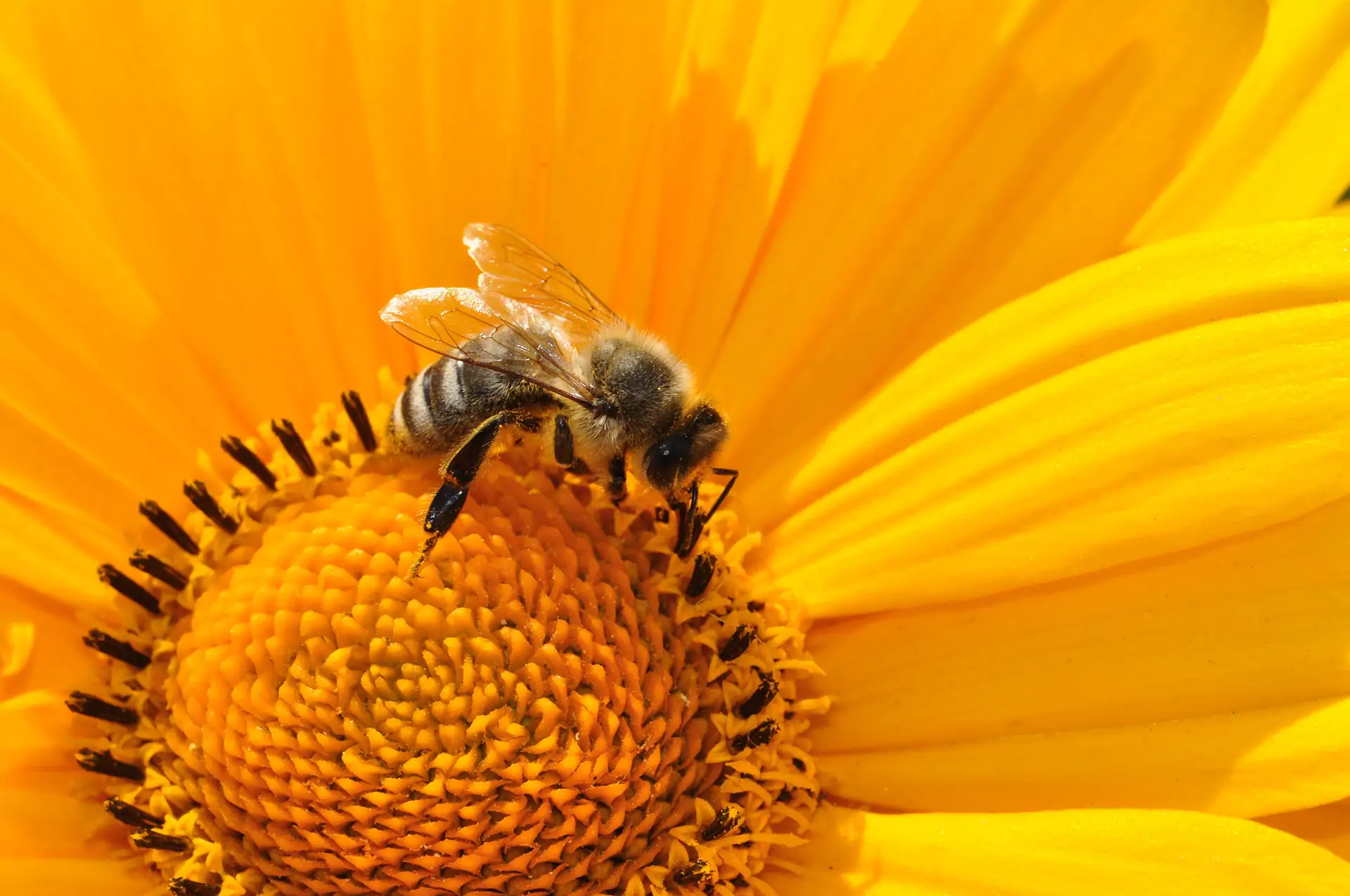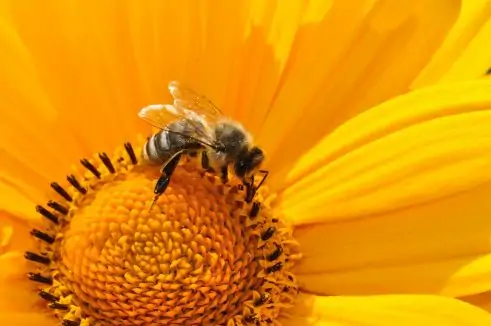
Did you know that honeybees die after stinging you? They can’t retract their stinger, so it basically tears itself apart and disembowels itself after stinging you. Why the pleasant factoid? I know people with side hustles, like brewing craft beers or making their own home apiaries — people who breed their own bees to develop their own brands of sage honey and honey-related products.
I remember bee stings whenever I think about trying this. Anyway, honeybees are big business. About a third of all the crops we eat require bee pollination. Almost all of the fruits, vegetables, and plants you eat require bee pollination. Apples, watermelons, kiwi fruit, strawberries, avocados, kidney beans, cherries, and too many other foods to list, would not exist without bee pollination.
Beehive Theft is Real and Expensive
Almost $580 billion worth of global food commerce requires bee pollination. It is such a big business that people are raising bees to rent them out to farmers and companies for mass pollination projects. In fact, you can make hundreds of dollars a day renting out bees. If you can stop thieves from stealing your beehives, that is.
Almond Trees
The scourge of beehive thieves, or rustlers, and why beehives are so valuable, requires a little context. OK, maybe a lot. The American almond industry generated over $5.2 billion in 2017. About 80% of the global supply of almonds are grown only in California. However, almond trees cannot produce almonds without bee pollination. There aren’t enough bees in California to accommodate its 1.2 million acres of almond trees.
So, every February, which is the launch of California’s almond farming season, almond farmers rent beehives from independent and corporate bee owners from all over the USA. If you can breed a few hundred thousand or million bees, then you can charge up to $500 a day to California almond farmers in need of them.
The almond tree season lasts for several weeks, so if you have a healthy sized apiary, you can make some big bucks. However, beehive thieves are getting the same idea. In the last few years, beehive rustling has become a burgeoning problem for police that is hard to solve. In one particularly sad case, a beehive entrepreneur lost about 500 beehives with over 50 million bees worth over $100,000. The loss represented his life savings.
Beehive theft is hard to solve because police usually have more pressing priorities. Most people don’t recognize it if they see it happening. They don’t usually think of beehives as being something valuable enough to steal. Beehive renting is a business that is projected to only get more profitable in the future. So, beehive rustling may only get worse before it gets better.
Apiary Entrepreneurship
So, interested? Well, if you want to get in on that sweet almond tree pollination money, you can learn to raise your own bees. It is not hard, and you can learn from local beekeeper clubs or organizations. This might be a practice you should learn from apprenticeship than DIY methods. You’ll have to study and buy materials, so don’t count on starting after a weekend of research.
First, make sure that you won’t violate any local laws by owning beehives in residential areas. Consider raising bees with others on property besides your own. There is no better way to launch a hateful, McCoy-Hatfield-like feud with your neighbors than to allow them to see you are raising live bees in your backyard within walking distance of their homes. If you do this, do it legally and strategically.
Read More
- Earn Extra Money Fast With $idehusl
- 10 Big Ideas from Seth Klarman and Margin of Safety
- Could You be a Medical Guinea Pig for Quick $?
Allen Francis was an academic advisor, librarian, and college adjunct for many years with no money, no financial literacy, and no responsibility when he had money. To him, the phrase “personal finance,” contains the power that anyone has to grow their own wealth. Allen is an advocate of best personal financial practices including focusing on your needs instead of your wants, asking for help when you need it, saving and investing in your own small business.

